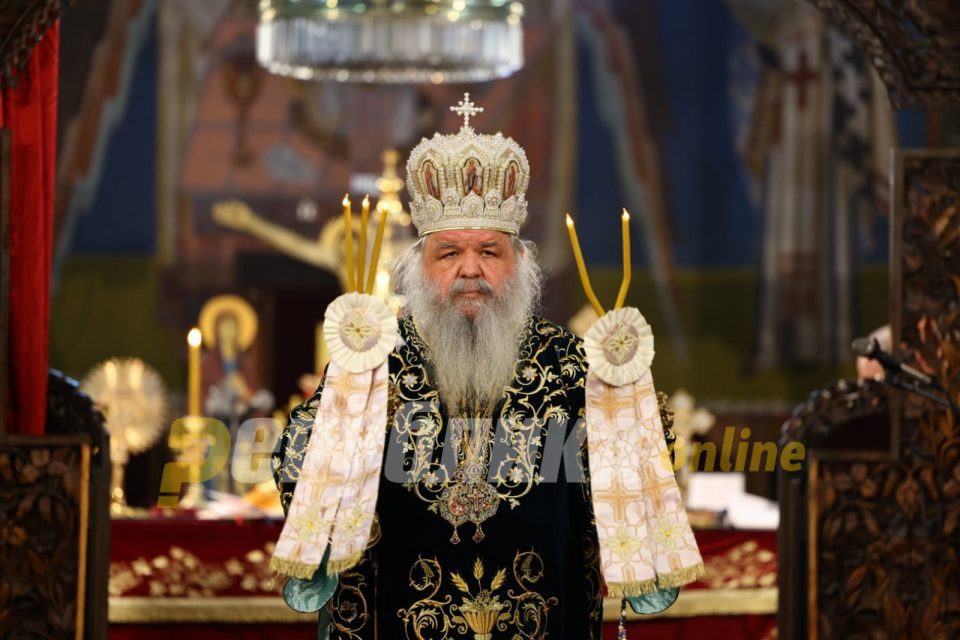The German Konrad Adenauer Foundation (KAS) published a report on the dispute between the Macedonian and the Serbian orthodox churches. According to KAS religious expert Otmar Oehring, it will be up to the election of the new Serbian Patriarch to see whether the dispute can move forward to resolution.
The report gives an overview of the re-establishment of the Macedonian Orthodox Church in Yugoslav times, and the attempts of the Serbian church to keep Macedonia under its clerical rule. It reviews the failed 2002 Nis treaty and Serbia’s subsequent attempts to install Goran Vraniskovski as archbishop of Ohrid.
Macedonian officials such as President Pendarovski and Prime Minister Zaev are currently trying to have the Ecumenical Patriarch Bartholomew adjudicate the matter, hoping that his decision will be similar to that in the case of Ukraine, where he recognized the Ukrainian Orthodox Church as separate from the Russian. Zaev even offered to bribe Bartholomew.
But Bartholomew refused to consider the Macedonian appeal equal to the one from Ukraine. “In October 2020 the Ecumenical Patriarchate announced that Patriarch Bartholomew I did not wish to grant the Macedonian Orthodox Church (MOC) autocephaly for the time being. It was not ‘a question of autocephaly’, the Patriarchate said, but rather of ‘healing a schism’. The MOC problem had existed for decades, it said, and the Ecumenical Patriarchate ‘as the mother church of all the churches in the Balkans’ had made numerous efforts to heal the schism”, Oehring writes. The phrasing strongly favors Serbian positions, as the Serbian Orthodox Church sees the Macedonian Orthodox Church as a schismatic organization.
Zaev and his top lieutenant Oliver Spasovski met with Bartholomew a year ago, and President Pendarovski also wrote to the Patriarch, urging that he recognizes the Macedonian Orthodox Church. But according to Oehring, Macedonia will have to wait and see who will be appointed as the new Patriarch of Serbia, before it can hope for some success using this route, or direct talks with Serbia.
In fact, the Patriarch (Bartholomew) had initially suggested that representatives of the MOC should meet representatives of the SOC, including the Patriarch of the SOC, Irinej, in Belgrade to discuss the resolution of open questions. This suggestion was turned down by the representatives of the MOC on the grounds that they did not feel safe in Belgrade. Bartholomew subsequently invited representatives of the SOC – including their Patriarch Irinej – and of the MOC to attend talks in the Ecumenical Patriarchate in Istanbul. Since Patriarch Irenej died on 20 November 2020, the planned discussions now cannot take place until after the election of a new Patriarch by the Synod of the SOC, Oehring adds.
The Serbian Synod elects a new Patriarch in ten days. “The issue in domestic respects is whether the SOC will in future have a Patriarch who will support the Serbian nationalist course pursed by the Serbian president – a Patriarch who will move in a different direction or even a Patriarch who will demonstrate independence in domestic policy and also prove to be a moderniser of the SOC.53 As regards relations with the country’s neighbours, the election of a new Patriarch will also be of great significance for the continuation and, ideally, the resolution of the conflict between the SOC and the MOC. But even if mediation by the Ecumenical Patriarchate of Constantinople does resolve the conflict between the two churches, one major task still remains: the tremendous damage wrought by the long-standing conflict between the Macedonian and Serbian side at the political and social level will have to be overcome through dialogue. To do so both sides will certainly need the support of understanding and knowledgeable moderators and mediators”, Oehring adds.





Comments are closed for this post.